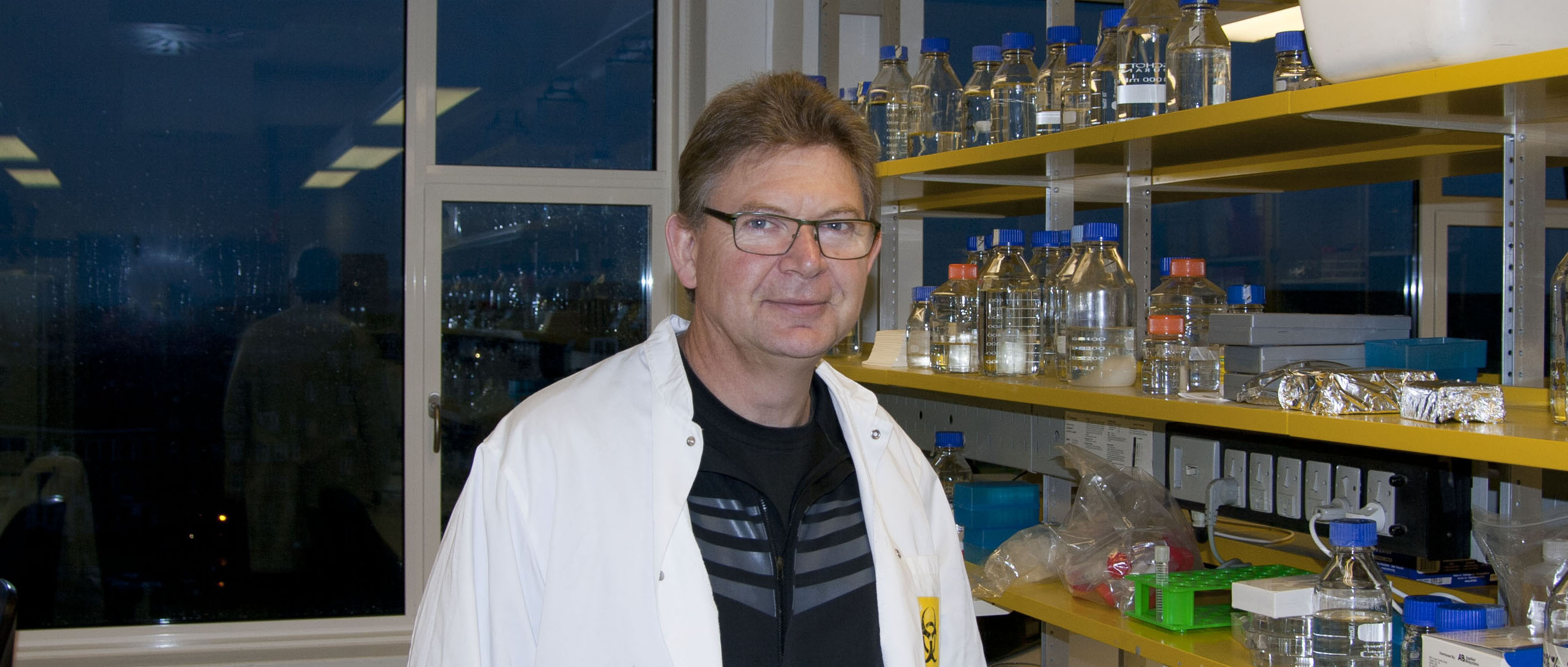Researchers aim to develop a new and effective vaccine against SARS
The Danish Council for Independent Research | Technology and Production Sciences (FTP) has awarded a grant of DKK 5 million to Senior Scientist Mogens Duch to develop vaccines against a wide range of human viral diseases such as SARS.

Many membrane-enveloped RNA viruses cause a considerable number of diseases in humans and are serious human pathogens for which there are no effective vaccines as yet. A team of Danish and French researchers is therefore determined to find new vaccines so these diseases can be effectively combated.
In order to survive in the host, these viruses must be capable of resisting the host immune system. This can take place by expressing immunosuppressive domains in viral proteins on the surface of the virus particles. These domains provide the virus particles with a stealth-like property that makes them difficult for the host immune system to detect and combat.
Immunosuppressive domains have previously been described – located in the fusion protein – for retroviruses such as HIV and Ebola. In 2011, the research team identified immunosuppressive domains for a considerable number of the remaining membrane-enveloped RNA viruses.
By first identifying and subsequently destroying these domains, the researchers expect to produce hyper immunogenic antigens (HIA) that are particularly suitable as immunogens for vaccination purposes because they are very ‘visible’ for the host immune system.
The research team has selected two groups of viruses for which no vaccine currently exists. They are coronavirus (class I fusion) – represented by the highly pathogenic SARS virus – and alphavirus (class II fusion) – with the less pathogenic chikungunya virus (CHIKV), which is economically important and serious in terms of disease.
If they succeed in developing new and effective vaccines, this could form the basis for a new platform technology for producing vaccines against a wide range of human viral pathogens.
Other participants in the research project come from SKAU Vaccines ApS and the Genome Biology Unit at the European Molecular Biology Laboratory (EMBL) in Grenoble, France.
For more information, please contact
Senior Scientist Mogens R. Duch
Department of Molecular Biology and Genetics, Aarhus University, Denmark
mrd@mb.au.dk – +45 8715 5483/2899 2514
